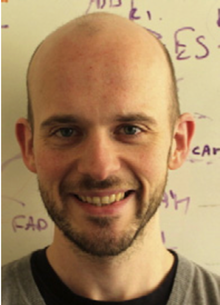
The design of new proteins and enzymes remains one of the great challenges in biochemistry and tests our fundamental understanding of both the nature of protein as a material and the principles of enzymatic catalysis. Unlocking the exceptionally diverse and powerful array of chemistries exhibited by natural enzymes promises routes to new drugs, therapies and green industrial processes.
To this end, we have constructed de novo heme-containing proteins from first principles that can be processed through natural biochemical pathways in vivo to produce fully functional manmade c-type cytochromes without the need for further in vitro assembly – a hitherto unrealised feat in de novo protein design. These evolutionarily naive proteins, maquettes, have proven capable of incorporating many engineering elements common to natural oxidoreductase proteins (e.g. reversible O2 binding, electron transport) within a robust but simple protein scaffold lacking the intrinsic complexity of naturally evolved proteins. These c-type cytochrome maquettes are capable not only of binding oxygen, but also of assembling nascent electron transfer chains, photoactive light harvesting dyads and engaging in interprotein electron transfer.
Most recently, we have assembled a CTM enzyme capable of catalysing chemistries common to natural heme-containing enzymes (e.g. peroxidases, epoxidases, oxidative dehalogenases) with catalytic efficiencies equaling or surpassing those of the current state-of-the-art de novo enzymes and certain naturally evolved enzymes, further highlighting the utility and versatility of these simple protein scaffolds. The activities intrinsic to this de novo enzyme also extend to abiotic reactions such as carbene and nitrene transfers, thus providing a versatile framework for exploitation and further optimisation.